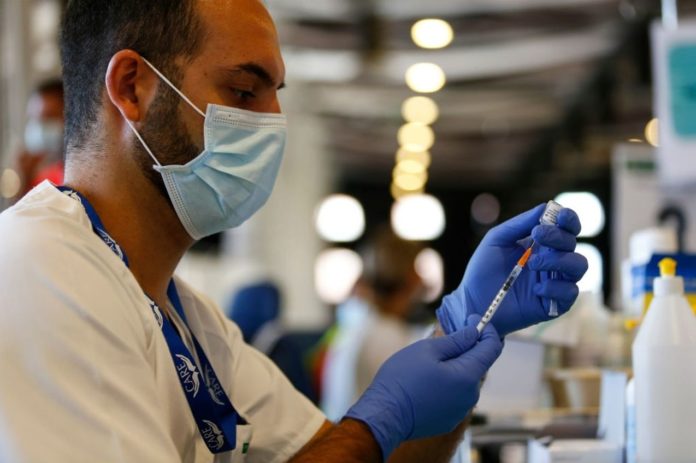Numerous studies have demonstrated that the three COVID-19 vaccines currently being used in the United States — manufactured by Johnson & Johnson (J&J), Moderna, and Pfizer — are effective and safe and represent the best hope for containing the pandemic.
And with so many of us having been vaccinated, it’s impossible to ignore the fact that vaccines affect people differently. While many people report having no reaction, others describe feeling ill enough to stay in bed.
A 23andMe study team wanted to learn more about why. Is it the sort of vaccine, our age, or something else?
To learn more about these variations, they evaluated data from over 100,000 consented research participants.
All the volunteers were asked three questions: (1) What was their most recent COVID-19 vaccination, (2) What symptoms, if any, did they experience, and (3) How sick did they feel afterwards.
The majority of trial participants reported receiving their second dosage of either the Pfizer (44 percent) or Moderna (38 percent) vaccine.
Around half of respondents reported feeling fine, 40 percent reported feeling a little or somewhat sick, and 10 percent reported feeling very or extremely unwell. To be clear, “feeling sick” in response to the shot is not synonymous with becoming clinically ill with the virus and requiring hospitalization.
Here are some of the key findings:
In comparison to the other vaccines, those who received a second dose of Moderna were more likely to report experiencing any symptoms (85 percent) and feeling very or extremely sick (18 percent) following their immunization. Again, these distinctions had little bearing on clinical outcomes.
Additionally, they discovered that younger people and women had more severe reactions to the vaccination than others.
In other words, these are very mild vaccine responses, but the vaccines provided significant protection against the virus.
Additionally, these symptoms often lasted only a few days following vaccination. Whereas COVID-19 infections can result in weeks or months of hospitalization or even death. Additionally, scientists are unsure of the timetable for so-called COVID-19 “longhaulers,” or patients who experience residual symptoms long after infection.
For all vaccine kinds, the most frequently reported symptoms were weariness, injection site soreness, and muscle/body pains. Nonetheless, a greater proportion of Moderna’s second dose users reported having each symptom (except nausea) than recipients of other vaccines.
Furthermore, in logistic regression models adapted for key demographic variables (age, gender, BMI, racial background, education, and history of COVID-19 infection), receiving a second Moderna shot was associated with a threefold increased risk of experiencing any symptom and a nearly 1.5x increased risk of feeling very or extremely sick (as compared to J&J).
In comparison to men, women were more likely to experience any symptoms, have more whole-body (systemic) symptoms, and feel generally unwell following immunization.
Indeed, after adjusting for any confounding variables, women were nearly twice as likely as males to report feeling very or severely unwell.
When younger people were compared to elderly people, similar trends were noticed. Individuals under the age of 40 had an average of two to three total-body symptoms, and nearly a fifth felt very or severely sick. In comparison, people above the age of 75 reported experiencing between 0 and 1 whole-body symptom on average, and just 4 percent reported feeling extremely ill.
These associations between sex, age, and vaccination reactivity persisted after adjusting for potential confounding variables.
Although it is unknown why some people experience more moderate or severe symptoms following their COVID-19 vaccination, one thing is certain: the COVID-19 vaccines are effective regardless of whether you feel sick following the vaccination, the study concluded.
Photo by Álex Cámara/NurPhoto via Getty Images
